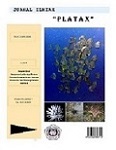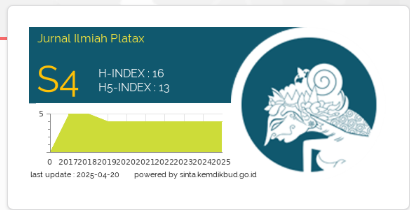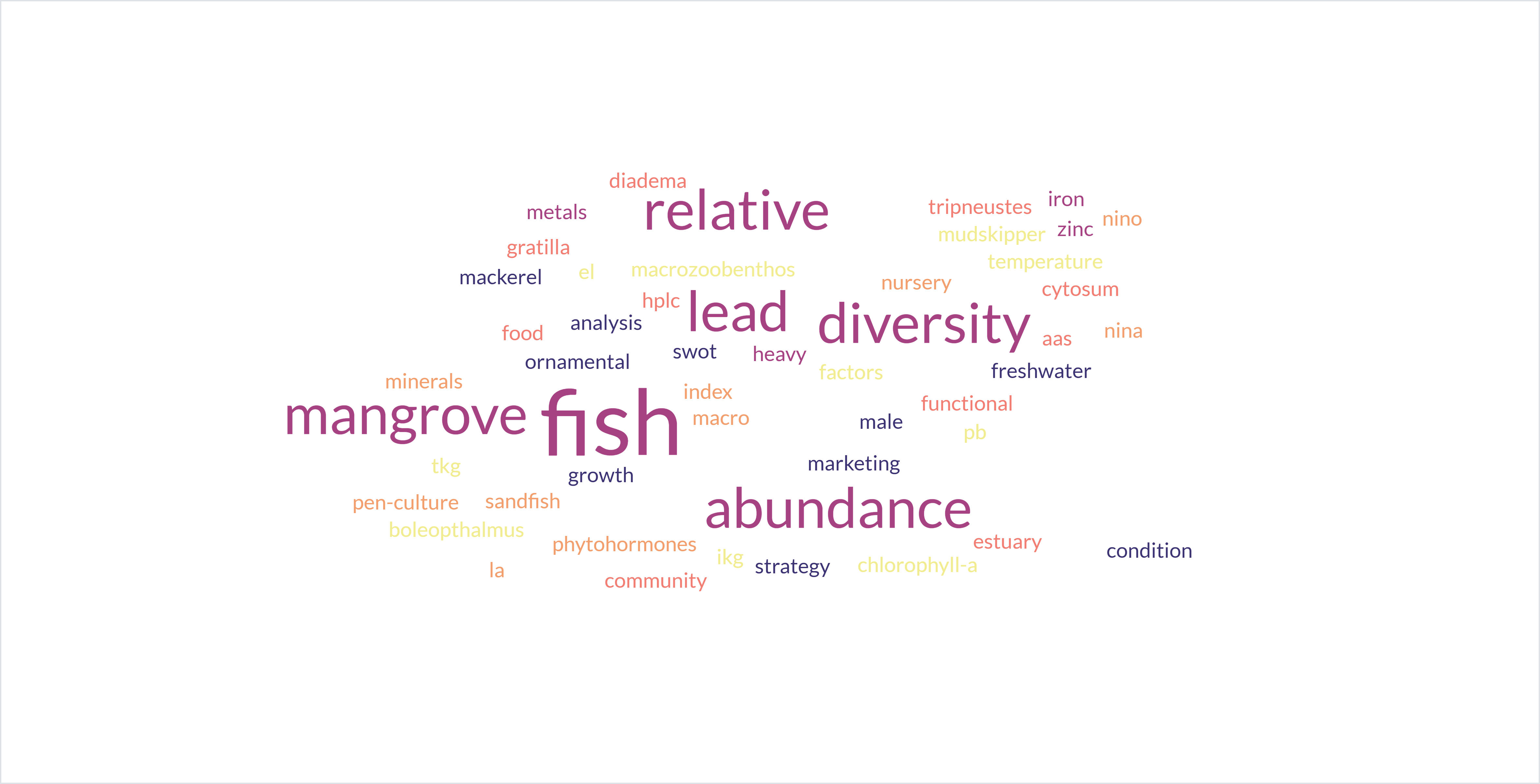Adaptation of "New Normal" to Marine Ecotourism Activities and Their Impact on the Welfare of Coastal Communities
DOI:
https://doi.org/10.35800/jip.v11i1.46413Keywords:
covid-19;, ecotourism;, new normal;, community welfare;Abstract
Abstract
This study aims to find out how the adaptation to the new normal period in the marine ecotourism business and its influence on coastal communities in West Likupang District. The research was conducted in West Likupang District in 4 villages (Bahoi, Bulutui, Tarabitan, and Jayakarsa).
The survey method was used to collect primary and secondary data. Quantitative data obtained in this study were obtained from respondent questionnaire data which were processed using the Microsoft Excel 2010 program. The data were also processed by cross-tabulation and statistically analyzed using the statistical t test using SPSS 16.0 For Windows software. The t statistical test (t-test) is used to test differences in ecotourism conditions before the pandemic, the Covid-19 pandemic, and the new normal period.
The results of data analysis using the t-test statistic showed a significant difference in the boat transportation business (P<0.05) with a decrease of 75%; homestay (P<0.05) with a decrease of 93%; a number of visits (P<0.05) with a decrease of 63%; and culinary (P<0.05) with a decrease of 67%. A qualitative assessment shows that the Covid-19 pandemic has caused a reduction in the frequency of work from the community in the form of tour guides, dive guides, fishing activity guides, parking attendants, motorcycle taxi drivers, bathroom guards, and ticket guards. A further implication of reduced visits is in the form of cessation of services from several jobs so that workers in the ecotourism sector adapt by diversifying jobs to be able to support their families and themselves.
Keywords: covid-19, ecotourism, new normal, community welfare
Abstrak
Penelitian ini bertujuan untuk mengetahui bagaimana adaptasi pada masa new normal pada usaha ekowisata bahari dan pengaruhnya pada masyarakat pesisir di Kecamatan Likupang Barat. Penelitian dilaksanakan di Kecamatan Likupang Barat pada 4 (empat) desa (Bahoi, Bulutui, Tarabitan, dan Jayakarsa).
Metode survey digunakan untuk pengumpulan data primer dan sekunder. Data kuantitatif yang diperoleh pada penelitian ini diperoleh merupakan data hasil kuesioner responden yang diolah dengan menggunakan program microsoft excel 2010. Data juga diolah dengan tabulasi silang dan dianalis secara statistik dengan uji statistik t menggunakan software SPSS 16.0 For Windows. Uji statistik t (t test) ini digunakan untuk menguji perbedaan kondisi ekowisata sebelum masa pandemi, masa pandemi covid-19, dan masa new normal.
Hasil analisis data dengan statistik uji t menunjukkan perbedaan signifikan pada usaha transportasi perahu (P<0,05) dengan penurunan sebesar 75%; home stay (P<0,05) dengan penurunan sebesar 93%; jumlah kunjungan (P<0,05) dengan penurunan sebesar 63%; dan kuliner (P<0,05) dengan penurunan sebesar 67%. Penilaian secara kualitatif menunjukkan masa pandemic covid-19 menyebabkan berkurangnya frekuensi pekerjaan dari masyarakat berupa tour guide, dive guide, pemandu kegiatan pemancingan, tukang parkir, tukang ojek, penjaga kamar mandi, dan penjaga karcis. Implikasi lebih jauh dari berkurang kunjungan berupa penghentian layanan jasa dari beberapa pekerjaan sehingga masyarakat pekerja di bidang ekowisata beradaptasi dengan melakukan diversifikasi pekerjaan untuk dapat menafkahi keluarga dan diri sendiri.
Kata kunci: covid-19, ekowisata, normal baru, kesejahteraan masyarakat
References
Andaki, J.A., 2012. Masyarakat Pantai Kota Manado Pasca Reklamasi. Disertasi. Program Pascasarjana. Universitas Padjadjaran Bandung.
Azamfirei, R., 2020. The 2019 Novel Coronavirus: A Crown Jewel of Pandemics. The Journal of Critical Care Medicine 2020; 6(1). https://www.researchgate.net/publication/339266396_The_2019_Novel_Coronavirus_A_Crown_Jewel_of_Pandemics.
Bramasta, 2020. Sering Disebut-sebut, Apa Itu New Normal?. https://www.kompas.com/tren/read/2020/05/16/164600865/sering-disebutsebut apa-itu-new-normal-?page=all. Diakses tanggal 27 September 2020 jam 15.30 WITA
Hijriati, E., dan Mardiana, R., 2014. Pengaruh Ekowisata Berbasis Masyarakat Terhadap Perubahan Kondisi Ekologi, Sosial, dam Ekonomi di Kampung Batusuhunan, Sukabumi. Sodality: Jurnal Sosiologi Pedesaan. Vol. 02 No. 03. ISSN: 2302-7517.
Kiper, T., 2013. Role of Ecotourism in Sustainable Development. http://dx.doi.org/10.5772/55749.
Nikijuluw, V.P.H., 2001. Populasi dan Sosial Ekonomi Masyarakat Pesisir serta Strategi Pemberdayaan Mereka Dalam Konteks Pengelolaan Sumber daya Pesisir Secara Terpadu. Makalah pada Pelatihan Pengelolaan Pesisir Terpadu. Proyek Pesisir, Pusat Kajian Sumber daya Pesisir dan Lautan, Institut Pertanian Bogor (IPB). Bogor.
Peraturan Menteri Kelautan Dan Perikanan Republik Indonesia Nomor 47/PERMEN-KP/2016 tentang Pemanfaatan Kawasan Konservasi Perairan.
Satria, D., 2009. Strategi Pengembangan Ekowisata Berbasis Ekonomi Lokal dalam Rangka Program Pengentasan Kemiskinan di Wilayah Kabupaten Malang. Journal of Indonesian Applied Economics. Vol. 3 No. 1 Mei 2009.
Tafalas, M. 2010. Dampak Pengembangan Ekowisata terhadap Kehidupan Sosial dan Ekonomi Masyarakat lokal studi kasus ekowisata bahari Pulau Mansuar Kabupaten Raja Ampat [tesis]. Bogor (ID): Institut Pertanian Bogor.
Tuwo, A. 2011. Pengelolaan Ekowisata Pesisir dan Laut. Surabaya (ID): Brilian Internasional.
Tuwo, A., 2011. Pengelolaan Ekowisata Pesisir dan Laut. Brilian Internasional. Surabaya.
Walpole, R.E., 1995. Pengantar Statistik (Terjemahan). PT Gramedia Pustaka Utama, Jakarta.
Yoeti, O.A., 2008. Perencanaan dan Pengembangan Pariwisata. Pradnya Paramita: Jakarta.
Downloads
Published
How to Cite
Issue
Section
License
Copyright (c) 2023 Jardie A Andaki, S.Pi., M.Si, Djuwita R.R. Aling, Steelma V. Rantung

This work is licensed under a Creative Commons Attribution-NonCommercial 4.0 International License.
COPYRIGHT
Authors who publish with this journal agree to the following terms:
Authors hold their copyright and grant this journal the privilege of first publication, with the work simultaneously licensed under a Creative Commons Attribution License that permits others to impart the work with an acknowledgment of the work's origin and initial publication by this journal.
Authors can enter into separate or additional contractual arrangements for the non-exclusive distribution of the journal's published version of the work (for example, post it to an institutional repository or publish it in a book), with an acknowledgment of its underlying publication in this journal.
Authors are permitted and encouraged to post their work online (for example, in institutional repositories or on their website) as it can lead to productive exchanges, as well as earlier and greater citation of the published work (See The Effect of Open Access).






































